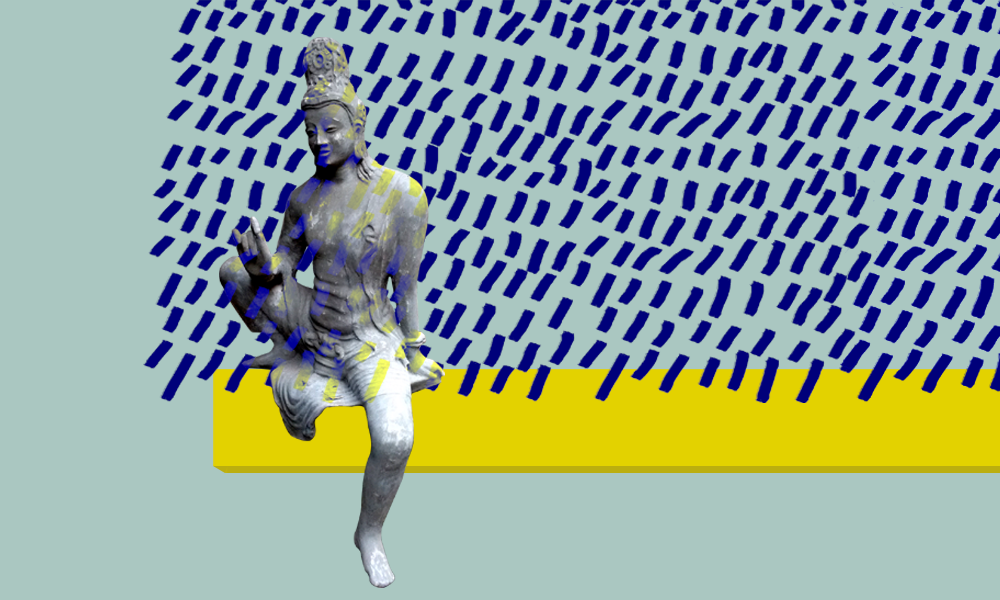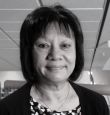
In this post, Professor Rowena Arshad reflects on the endeavour of decolonising the curriculum, and how the process begins with developing reflexive, inclusive, and transformative pedagogical practices. Prof Arshad was a keynote speaker at this year’s Learning and Teaching Conference and was formerly the Head of Moray House School of Education and Sport. You can view her keynote talk ““Diversity in learning and teaching: Is inclusion truly available?” on the Conference website. This post is part of the ‘Hot topic’ theme ‘Lessons from the Learning and Teaching Conference 2021′.
The range of concepts that have to be taken on board as part of developing inclusive learning and teaching can be overwhelming. For example, how do I ensure I am using inclusive pedagogy and at the same time consider issues of decolonising the curriculum or delivering for an LGBT inclusive curriculum? What about the other protected characteristics? It also takes time to research new content and there is never enough time. Two useful starting points is always to anticipate diversity and avoid making assumptions.
The first step is to reflect on how I might deliver for an inclusive curriculum. The second is to move from an inclusive to a transformative approach, and the final stage is to interrogate my own subject area and to consider how historical forces such as imperialism and colonialism has influenced the way I have presented my content. It is important to remember that there is no universal template on how to embed equality, diversity and inclusion into the curriculum. An inclusive or transformative practice is unlikely to look the same in every academic discipline. How we embed issues has to be contextual and not feel forced. However, if we do not consciously engage with thinking about equality, diversity, and inclusion as part of our pedagogical practice, then the default situation will prevail where knowledges and ways of knowing continue being shaped by colonialism, patriarchy, capitalism, heteronormative frames and so on.
It is also important to remember that curriculum not only encompasses taught content or assigned reading, but also the entire way in which learning happens. So I have to consider the formal and hidden curriculum such as the ethos of the learning environment. I do not make a distinction between face to face or online as, while there differences, I believe the same basic principles of why we need to engage with inclusion and transformation apply regardless of mode of delivery.
- An inclusive curriculum
I understand developing an inclusive curriculum to be:
….an approach that acknowledges the diversity of learners within a learning environment. It would also include removing or at least minimising barriers that hinder learning and participation (Morgan and Houghton 2011).
What I have learnt is that when you consider issues of inclusion for one group, all students benefit. A range of areas that tutors and lecturers have worked on to enable inclusion include establishing a supportive and caring class ethos where diverse students can belong to a shared learning space. Being aware of how we use language and even with basic terms like ‘they’, ‘them’, ‘we’, ‘us’ we need to be mindful of who is included or excluded in each of those words. Language is a key method some people will use to risk assess the ‘safety’ or ‘positiveness’ of a learning environment.
Unfortunately, it is not a case of simply being able to ‘learn’ the right language to use. We will get it wrong. There will be others who will be able to demonstrate a much broader understanding of some terminology and issues than we can. So, it is important to be open to learning, to hearing and to apologise if necessary.
Other pedagogical approaches we might use would be to scaffold the presentation of content and contextualisation of the meaning through the use of a range of clues such as visual clues. For example, when I want to teach about the difference between equity and equality, I have found the visual aid below can often explain more than I can.

This image stimulates debate and learners often take the ideas further and question the need for boxes at all proposing instead the removal of the fence.
Diversifying the reading list is a route used by many tutors as a way of raising issues, of challenging stereotypes and opening learners to different perspectives with the aim of creating a learning environment where diverse experiences are recognised and valued. There is subliminal value in diversifying the reading list – it is a way of acclimatising your learners to the presence of a range of writers, be that writers of colour, writers who identity as LGB or other characteristics. It feels like a small change but one that people from minoritized and under-represented groups have identified as important to improving their experience.
After analysing research they conducted on higher education reading lists, Schucan Bird and Pitman (2020: 904) from UCL remind us that reading lists are ‘representation devices serving to reflect particular perspectives and knowledge’.
2. Towards a Transformative Curriculum
An inclusive approach is not necessarily one that is anti-discriminatory and transformative. In my area of race equality, a transformative approach would be to move from a position of ‘being’ non-racist to a space of ‘doing’ by being anti-racist. Therefore, I would seek to adopt an anti-racist approach which I have defined as:
one that understands ‘race’ to be a social construction, challenges the values, structures and behaviours that perpetuate systemic racism and other forms of societal oppression
An anti-racist approach is one that acknowledges racism is real and opens up spaces for talking about racism and how racism at a personal, cultural and institutional level might manifest itself in contemporary contexts. This approach acknowledges that racism is learnt and can be unlearnt.
In 2010, I wrote the Anti-Racist Toolkit for Universities Scotland and the Equality Challenge Unit. I provide some examples which were provided to me from the sector to exemplify how different subject areas have developed an anti-racist curriculum:
Sports Studies 4 year UG programme
Year 1- students consider the impact of racism and other forms of discrimination on sports participants and steps that can be taken to address any issues.
Year 2 – students consider how racism and ethnicity impact expressions of nationalism and nationhood through sports.
Year 3 and 4 – examine the links between ethnicity sport, gender and identity where issues of social division are explored
Medicine: General Practice and Primary Care
Consideration of medical ethics from different perspective looking at issues like abortion, fertility, sanctity of life, organ donation
Biology: Genetic Engineering A specific unit opens up discussion about how genetics, genetic engineering and eugenic social theory have been used to legitimise racism
and other forms of inequality.
Film and Media Studies: Journalism Contemporary topics are brought in to raise awareness of race-related issues such as the experiences of asylum seekers and migrants in Scotland.
Design In a discussion about creativity and space tutors move away from contextualising these concepts solely from the perspective of ‘Western art’. Other philosophies, for example Yoruba or Ancient Indian, and their interpretations of creativity and space, are considered. The course tries to redress North-centred knowledge of arts.
Scottish writing and the new millennium Utilising the theme of ‘silenced voices and dominant narratives’ to explore reasons why certain authors are excluded (race, gender, social class, faith) and to juxtapose these voices with those in authority
Community Health Sciences Students are explicitly given opportunities to practice how to tackle racism at work e.g. working with a patient in an outpatient department who is refusing to be treated by a black and minority ethnic member of staff
3. Decolonising the curriculum
Having considered issues of inclusion and then moving to taking a more pro-active and transformative approach, I see decolonising the curriculum as a deepening of those efforts. I have made sense of decolonising the curriculum as:
…involving a critical analysis of how colonial forms of knowledge, pedagogical strategies and research methodologies… have shaped what we know, what we recognise and how we reward such knowledge accordingly. (Arshad, 2020)
It is about an approach that acknowledges the effects of colonialism, racism and epistemicide (the killing of knowledge systems) and seeks to remove those influences.
To decolonise is not about deleting knowledge or histories that have been developed in the West or colonial nations, rather it is to situate the histories and knowledges that do not originate from the West against the context of imperialism, colonialism and power and to consider why these have been marginalised and de-centered. It is about a different vision of what knowledges could be had imperialist and colonial frameworks not shaped them. Harshad Keval, (2019) talks about the decolonising approach as a repositioning of ‘who and what gets to occupy the centre and the margins of ideas and society’ and to rebalance that power.
Decolonising the Curriculum is not about adding diversity (e.g. through making reading lists more diverse) but it is an interrogation of our ways of knowing and to consider what has been validated by commission but also what has become marginalised and hidden by omission.
In my own area of study, which is that of social justice and race equality, I know I have largely drawn on Western notions of justice. I need to do more to engage my students in looking beyond the Western writers and now need to unpack the concept of justice from thinkers that have been decentred such as Soyinka, Wa Thiongo, Confucius, Gautama, Rumi and so forth.
Conclusion
Issues of identity, equality and power have framed the way I have approached my learning and teaching, my research and knowledge exchange endeavours. These issues are not an add-on or approached as a discursive problem to be analysed and explained. For me, issues of equality, diversity, discrimination are phenomena that have impacted on people’s everyday lives. My journey has been all the richer when I have taken change and inclusion forward in partnership with learners. We are such a diverse learning community (f2f or online) that we cannot possibly deliver content that is relevant to everyone. Therefore, it is even more important pedagogically to include diverse voices and critical thought from our learners themselves so that we are all in the project of rethinking, reframing and reconstructing together.
References
- Arshad, R (2020) Decolonising and initial teacher education, CERES Blog, September 7, 2020: https://www.ceres.education.ed.ac.uk/2020/08/19/decolonising-and-initial-teacher-education/
- Keval, H. (2019) ‘Navigating the “decolonising” process: avoiding pitfalls and some do’s and don’t’s’, Discover Society Blog.
- Maldonado-Torres, N. 2007. On the coloniality of being. Cultural Studies, 21(2–3): 240–270. DOI: https://doi.org/10.1080/09502380601162548
- Morgan, H., and A. Houghton. 2011. Inclusive Curriculum Design in Higher Education: Considerations for Effective Practice Across and Within Subject Areas. New York: The Higher Education Academy
- Schucan Bird, K., Pitman, L. How diverse is your reading list? Exploring issues of representation and decolonisation in the UK. High Educ 79, 903–920 (2020). https://doi.org/10.1007/s10734-019-00446-9

Rowena Arshad
Professor Rowena Arshad CBE, FEIS was formerly the Head of Moray House School of Education and Sport. She currently convenes College of Arts, Humanities and Social Science (CAHSS) Equality, Diversity and Inclusion (EDI) Committee. She is a member of the University EDI Committee and convenes the Race Equality and Anti-Racist Sub-Group. Rowena also chairs a Scottish Government Working Group on Diversifying the Teaching Profession. Rowena is also attached to the Centre for Education for Racial Equality in Scotland (CERES) and is a member of the RACE.ED forum at the University. Her teaching, research, knowledge exchange and scholarship activities have been in the area of race equality, anti-racism and equalities in general.

Pushpi Bagchi
Pushpi is a South Asian communication designer and educator living in Scotland, where she is working towards a PhD in design education at Edinburgh College of Art. Her design practice involves experiments using visual communication design as a tool to initiate social and cultural dialogue. She enjoys combining analogue techniques with digital media and love colour, pattern, and whimsy. In her spare time, she plans elaborate travel itineraries and attempts to polish her culinary skills.
Website: https://www.pushpibagchi.com

